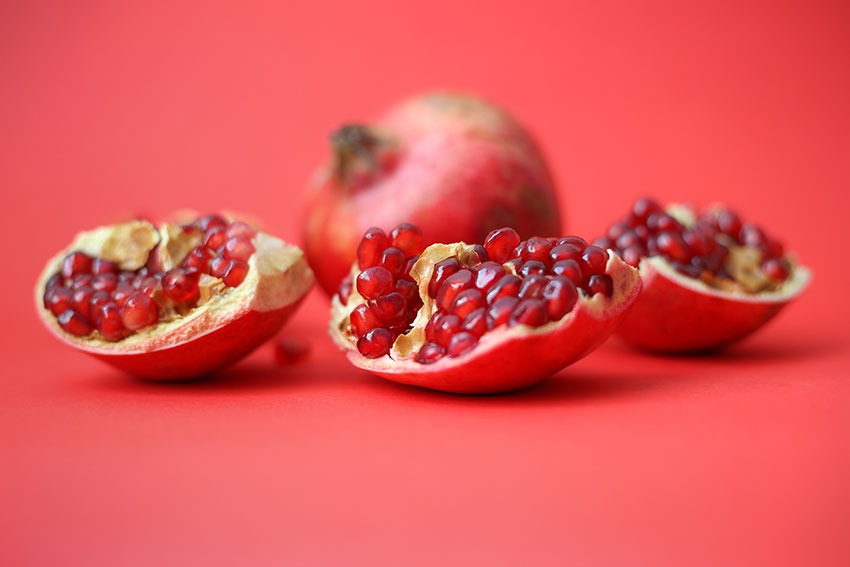An ancient symbol of prosperity and fertility, pomegranates were grown in Nebuchadnezzar's Hanging Gardens of Babylon, depicted in Egyptian hieroglyphics and mentioned throughout the Bible.

Pomegranates are one of the superfoods.
They contain the antioxidants:: tannins, anthocyanins and allargic acid that have anti-cancer, anti-heart disease and anti-aging properties. The seeds, also known as arils, provide the juicy taste and are low in calories, high in fiber and vitamins C and K. Spanish missionaries first planted pomegranates in California and Mexico during the 16th century. California grow most of the domestic supply today. Dr. Gregory Levin, a famed pomegranate scientist, devoted his life to studying the ruby fruit and preserving its biodiversity. For more than forty years, he trekked across Central Asia and the TransCaucasus in search of wild and endangered pomegranates. His home was a remote Soviet agricultural station in the mountain range separating Turkmenistan from Iran. After the break-up of the Soviet Union, he found himself exiled from his hidden Eden and his collection of 1,117 pomegranates. His fascinating story is told in the book: Pomegranate Roads: A Soviet Botanist’s Exile from Eden
